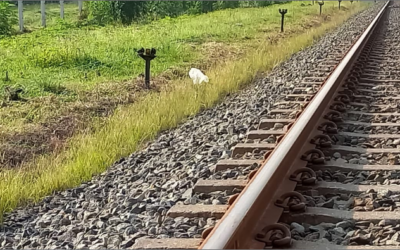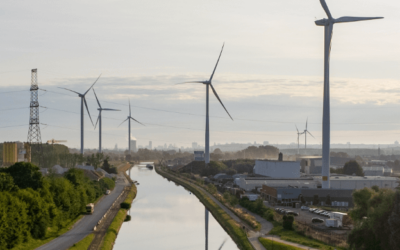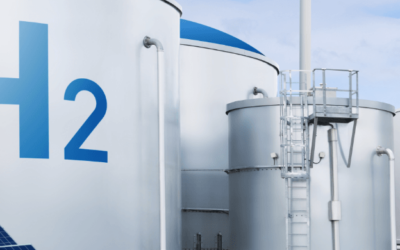Reduce or capture CO2
Mission-Driven Research, Development and Innovation (MOOI)
If you would like to work together with other organisations as part of a consortium to find an integrated solution that helps achieve the climate targets, the MOOI (Missiegedreven Onderzoek, Ontwikkeling en Innovatie – Mission-Driven Research, Development and Innovation) grant scheme will be able to support you.
MOOI, which is part of the Top Sector Energy (TSE) grant programme, covers project development for three categories: Electricity, Built-up Environment, and Industry. This Dutch scheme is of particular interest to developers of new innovations that are not yet ready for a commercial market launch but that nevertheless may result in an initial application or demonstration in a real-life setting over the next five to ten years. Key focus areas must include technical and social factors and opportunities.
In short
MOOI grant overview
For whom?
Consortiums of companies that collaborate with research and educational institutions, non-profits and/or stakeholders (including suppliers, buyers and users). A consortium must consist of at least three companies.
When to apply
Applying for the MOOI grant can only be done within official rounds. In 2024:
- a compulsory pre-application round from 19 March to 18 April 2024 (17:00)
- then the official application round, from 4 June to 5 September 2024 (17:00).
After the deadline, all submitted projects will be compared.The best-scoring projects will receive grants (until the available budget runs out).
How much?
The total grant budget for the MOOI scheme in 2024 is over €61 million. This will be divided equally among the three thematic 'missions': Electricity, Built Environment and Industry.
The MOOI grant can reach a maximum of €4 million per project.
For what?
Partnership projects aimed at innovative new solutions that contribute towards achieving the climate targets.
Overview of
MOOI themes
Electricity:
- innovations for faster development of offshore wind power
- labour- and material-saving innovations for renewable electricity production on land
- innovations aimed at multiple use of space in renewable electricity production on land
Built environment:
- innovative sustainability solutions for the sustainability challenge of the existing built environment
- innovations that contribute to a future-proof energy system for residential districts, business parks, office or retail areas.
Industry:
- process innovation through electrification and chain innovations
- Biobased Circular.
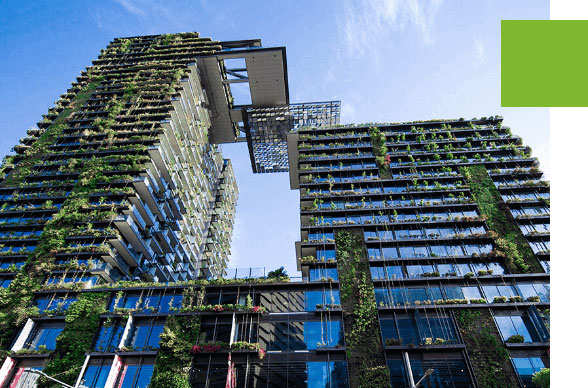

Meet the requirements
MOOI criteria
We list here the main conditions a project must meet to apply for the MOOI grant:
The project must fit well within the official innovation themes (see above). However, a project must not primarily consist of a pilot (although pilot activities may in principle be part of the project).
The project must have a financial size of at least €2 million in eligible costs. Research organisations may incur up to 50% of the costs.
A project must be carried out by a consortium of at least three companies (which may not belong to the same group).
The consortium should bring together different expertise and perspectives (such as innovative SMEs, knowledge institutions, interest groups, suppliers, customers, users). This should ensure a project with an integral, clearly coherent approach and a multidisciplinary character.
The project's intended innovation should lead to a first application within 5 or 10 years of its start. This need not yet be a large-scale roll-out (a demonstration project may be sufficient). The 5-year period only applies to projects within the Built Environment theme. For the Industry and Electricity themes, that term is 10 years.
With the grant application, the consortium must submit, among other things, an innovation plan that includes SMART (Specific, Measurable, Acceptable, Realistic, Time-bound) milestones to track progress.
Get in touch
What can EGEN do for you?
MOOI is a tender scheme, which means only the strongest projects submitted will receive a grant. It is therefore essential that your project has a solid foundation and that you submit a clear and convincing grant application. Our consultants will be pleased to support you in this process.
“I mainly work on projects within the energy sector, specifically related to the Built Environment. My aim is to help clients realise their energy transition ambitions. I also like to contribute to developing ideas to realise and finance successful projects.”
Contact Marco Gomis →
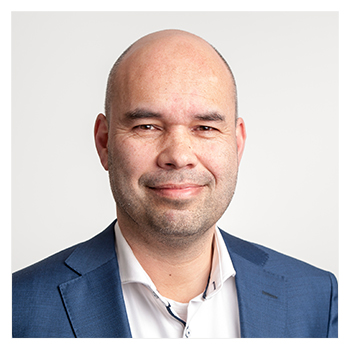

KEEP UP TO DATE
News
EGEN supports ProRail with successful LIFE application for nature-friendly vegetation removal along railway tracks
The new call of the European LIFE programme has been opened in April. LIFE is the European Union’s funding instrument for projects focused on nature, environment, climate, and the energy transition. It offers a unique opportunity to turn innovative and sustainable...
Two new Horizon calls published for sustainable energy
The European Commission's Horizon Europe Work Programme for 2023-2024 has allocated 188.6 million EUR to support sustainable energy projects within Cluster 5. This cluster covers the areas of Climate, Energy and Mobility, and as such is a vital component of the EU’s...
Three tips for a successful EHB Auction proposal
The European Hydrogen Bank (EHB) is an initiative of the European Commission established in 2023 with the aim to support among other things the EU domestic renewable hydrogen production. At EGEN, we are dedicated to navigating the European Hydrogen Bank Auction...
